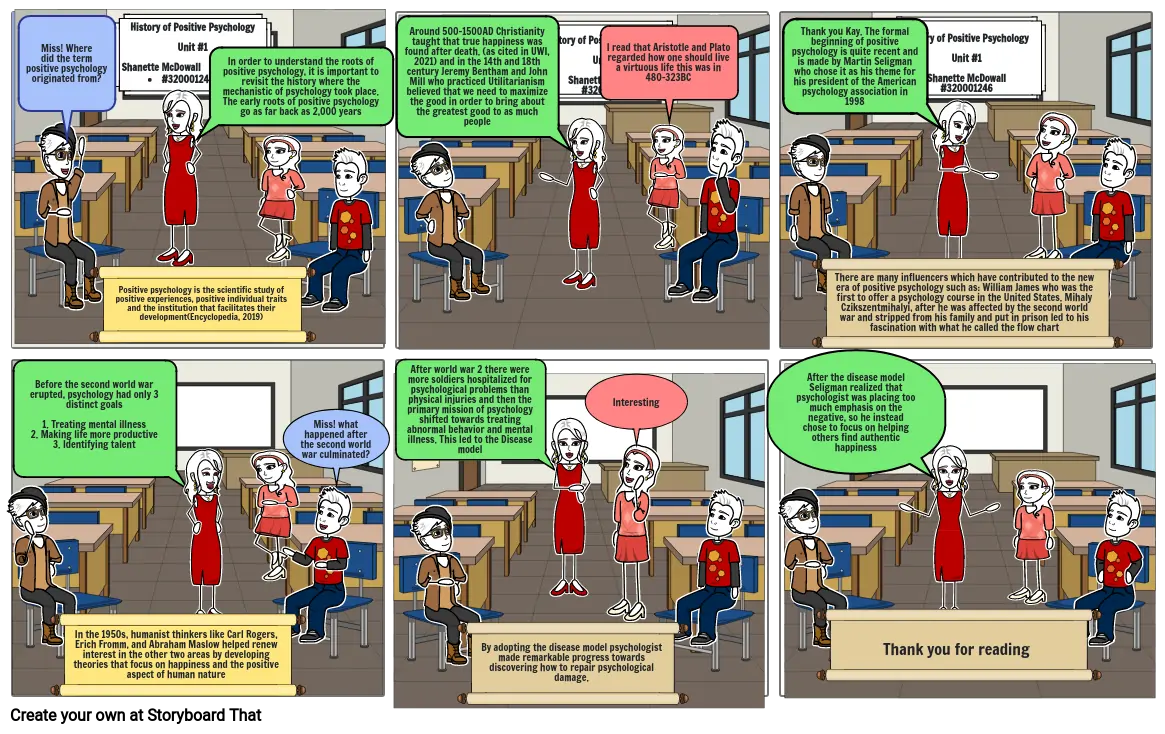History of positive Psychology Storyboard

Storyboard Text
- Miss! Where did the term positive psychology originated from?
- Positive psychology is the scientific study of positive experiences, positive individual traits and the institution that facilitates their development(Encyclopedia, 2019)
- History of Positive PsychologyUnit #1Shanette McDowall #320001246
- In order to understand the roots of positive psychology, it is important to revisit the history where the mechanistic of psychology took place. The early roots of positive psychology go as far back as 2,000 years
- Around 500-1500AD Christianity taught that true happiness was found after death. (as cited in UWI, 2021) and in the 14th and 18th century Jeremy Bentham and John Mill who practiced Utilitarianism believed that we need to maximize the good in order to bring about the greatest good to as much people
- History of Positive PsychologyUnit #1Shanette McDowall #320001246
- I read that Aristotle and Plato regarded how one should live a virtuous life this was in 480-323BC
- Thank you Kay. The formal beginning of positive psychology is quite recent and is made by Martin Seligman who chose it as his theme for his president of the American psychology association in 1998
- There are many influencers which have contributed to the new era of positive psychology such as: William James who was the first to offer a psychology course in the United States. Mihaly Czikszentmihalyi, after he was affected by the second world war and stripped from his family and put in prison led to his fascination with what he called the flow chart
- History of Positive PsychologyUnit #1Shanette McDowall #320001246
- Before the second world war erupted, psychology had only 3 distinct goals 1. Treating mental illness 2. Making life more productive3. Identifying talent
- In the 1950s, humanist thinkers like Carl Rogers, Erich Fromm, and Abraham Maslow helped renew interest in the other two areas by developing theories that focus on happiness and the positive aspect of human nature
- Miss! what happened after the second world war culminated?
- After world war 2 there were more soldiers hospitalized for psychological problems than physical injuries and then the primary mission of psychology shifted towards treating abnormal behavior and mental illness. This led to the Disease model
- By adopting the disease model psychologist made remarkable progress towards discovering how to repair psychological damage.
- Interesting
- After the disease model Seligman realized that psychologist was placing too much emphasis on the negative, so he instead chose to focus on helping others find authentic happiness
- Thank you for reading
Over 30 Million Storyboards Created

